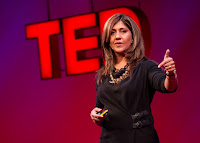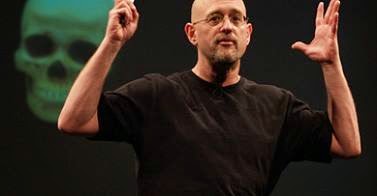"Sitting has become the smoking of our generation."
Good Morning Folks,
In her VERY short TED talk, Nilofer Merchant suggests a small idea that just might have a big impact on your life and health: Next time you have a one-on-one meeting, make it into a "walking meeting" — and let ideas flow while you walk and talk.
You'll be surprised at how fresh air drives fresh thinking, and in the way that you do, you'll bring into your life an entirely new set of ideas. Gave a look:
TED offers you more ways to Work Smarter. Here is a playlist of 11 other talks about working smarter that you might enjoy. This isn't traditional business advice. These talks offer unconventional, and uncommonly useful, advice on leading, working and making the most of each day.
Have a GREAT day!
Mitchell D. Weiner
Chief Happiness Officer
.....................................................................................
"If you really look closely, most overnight successes took a long time."
.....................................................................................
Ideas are not set in stone. When exposed to thoughtful people, they morph and adapt into their most potent form. TED Tuesdays on MitchWeiner.com highlights some of today's most intriguing ideas. Look for more talks on Technology, Entertainment and Design -- plus science, business, global issues, the arts and much more— HERE.













